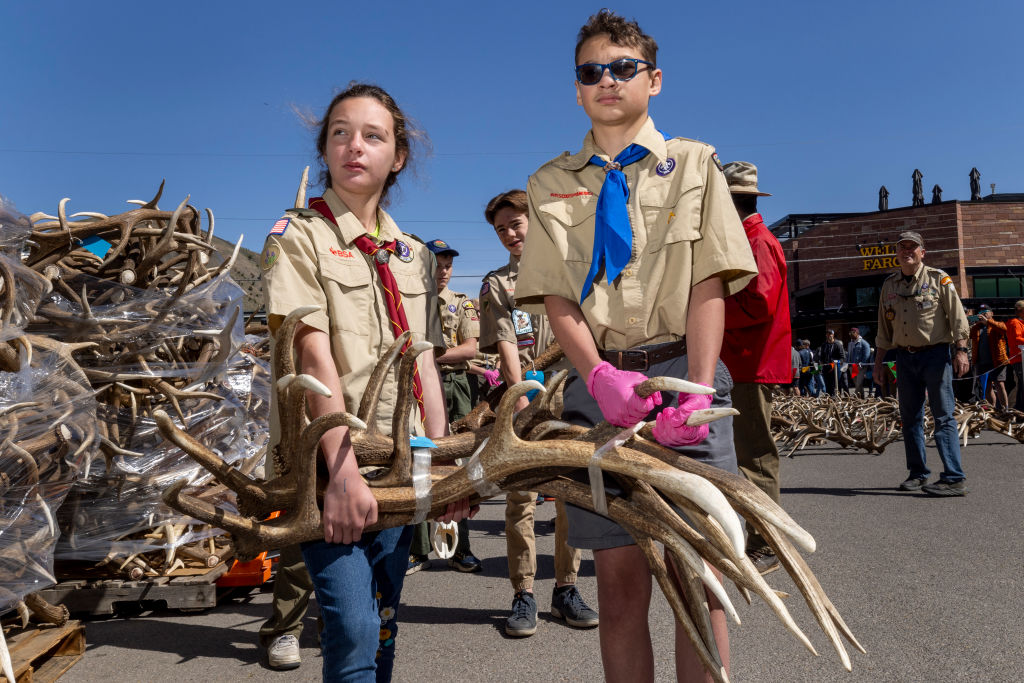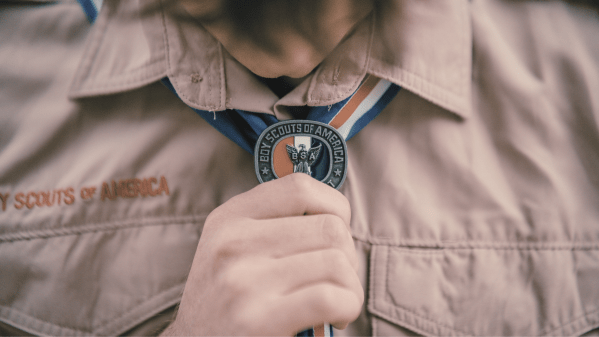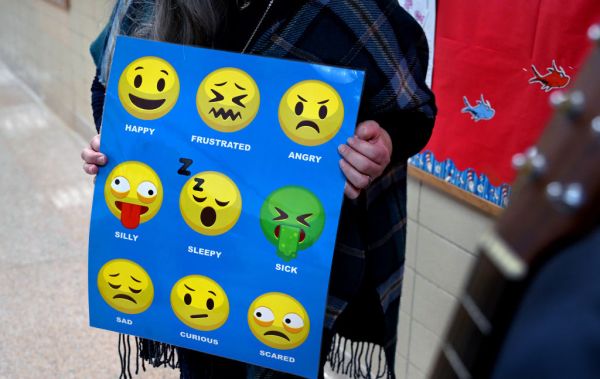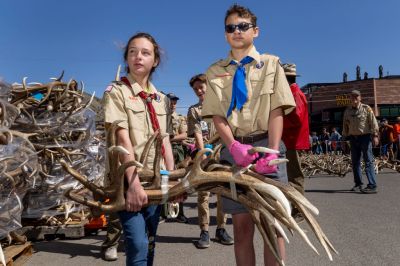The Boy Scouts no longer exist, nor have they existed for five years. My home troop still does. The councils I worked for and the camps I volunteered at are still there. I was and always will be an Eagle Scout—it is a distinction and responsibility that I will carry for the rest of my life.
But Boy Scouting, since 2019, has stopped being Boy Scouting. It’s now Scouts BSA, because it’s not just boys who can join anymore. Girls, for the first time in the organization’s history, can join as full members. Female Eagle Scouts joined the class of 2021 in earning one of the most prestigious youth awards in the United States. And now, on February 8, 2025, the Boy Scouts of America, the broader organization that includes other programs such as Venture and Explorer Scouting, will change its name simply to Scouting America. References to “Boy” will now be removed from the organization entirely.
Recently Philip Bunn argued here that this change is far more than symbolic. For both of us, Boy Scouts offered a male-only space in which we could grow to become better leaders and, over time, better men. But now that girls have been admitted into the program, that unique environment has been destroyed. “Staring down the barrel of declining membership, declining interest, declining investment by former Scouts, as well as increased costs borne from expanding their offerings, the erstwhile ‘Boy Scouts of America’ has flattened itself,” he wrote. The organization has “ceased to advocate for its own rugged, wilderness-focused, masculine-cultivating character,” and now is forced to cater to a thousand fads and the increasing pressures of a society that does not have “boyhood” in its vocabulary. In Bunn’s view, it is now just the same as any other youth club or sports team—just very old and, every day, a little more tired. It has lost its way.
This could be a real problem if it were true, but that’s simply not the case. Scouts BSA is as sex-segregated an organization as the Boy Scouts was. Troops may be either fully male or fully female, but they may not be integrated. They may not hold meetings together, join the same patrols, or share youth leadership. If they are to go on an outing or camping trip together, strict rules regarding youth protection and supervision must be maintained—as was always the case. This is not only the official policy, as according to the July 2023 rules and regulations, this is a natural consequence of youth protection rules and good common sense. The BSA acknowledges that boys and girls are different and makes sure that each group has the space they need to flourish.
Furthermore, the Boy Scouts is not a one-size-fits-all program: It is a diverse tapestry of different local organizations oriented around the wants and needs of the youth they serve. In fact, that’s one of the Boy Scouts’ defining features: the patrol method. The entire organization is built from the bottom up, from units of five to 15 youths who are fully in charge of leading themselves. These units plan their own outings, buy their own food, and elect their own leaders. They are the crucible in which the Scouting character is formed.
Bunn is concerned that boyhood development will suffer if boys are exposed to the social anxiety that exist within coed spaces, but the patrol method is already in place to provide a buffer against many of the pressures that young men face—from female attention, but also from their friends, their media consumption, and their own self-doubt. Girls can be present at school, they can be present at summer camps, they can be present after a troop meeting—in fact, they always were, even before they were officially members. But the patrol still belongs to the boys who are in it. It will still be a small, often wild, often unwashed group of adolescent boys who hike up creeks without a map and who try to use live archery ranges as hiding spots during games of capture the flag. (In defense of the boy I found who thought this was a good idea, it was a really clever hiding spot.) That space, free from the pressures of adolescence, was crucial to me as a young man. It made me who I am now, and losing it would mean losing part of myself. But it has not been lost. It’s now ours to share.
But Scouting is not only about the patrols. Will spreading our principles to new members dilute our programs? What of the “rugged, wilderness-focused, masculine-cultivating character” that is so integral to Boy Scouts, and that Bunn is eulogizing in his essay? For me, that’s a major concern. Wilderness trips and outdoor experiences are how I learned what being a Boy Scout meant. I was a staff member at regional summer camps for years, even after I earned the rank of Eagle Scout and officially aged out of Boy Scouts. I taught horsemanship, first aid, wilderness survival, and many other skills. I expect the youth that I work with to be prepared, as they should be, for physical challenges.
But I’ve met the girls who so desperately want to be a part of Scouting, and they have what it takes. They are the first ones at the rifle range when it opens. They trek the extra 5 miles just so they can make it to the top of the waterfall. They really do love adventure. They did all this, even before they were allowed to earn ranks, while they were still just tag-along little sisters and boisterous older cousins. They are not shying away from rugged, wilderness-focused programs. They are demanding them, are not finding them in the organizations that claim to cater to them, and want to join an organization that will give them wilderness adventure. If those activities are exclusively masculine, they don’t really seem to care.
And that’s the core mission of Scouting: to provide youth with experiences that will grow their character. Girls need those experiences no less than boys. If given the opportunity, they will seek them. For many, the Boy Scouts were the only real opportunity to have those experiences.
The emblem of the Boy Scouts is the fleur-de-lis. It points the way just as the compasses of old did, guiding generations of explorers on their journeys. The two stars on its arms, Truth and Knowledge, serve as guiding principles for Scouts as they walk through life and face challenges that no other organization could have prepared them for. This is what makes us different from every other youth organization. This is our distinguishing factor, and time has proven that the BSA is the only youth organization that will consistently deliver these values to youth across the country.
The accusation that the BSA has lost its character by changing its name to Scouting America is false. Its mission is not to worship masculinity or create a “safe space” for boys to be congratulated on their boyhood. Its mission is to challenge youth—physically, intellectually, spiritually—to leave themselves behind and grow into better citizens. It is hard. It must be hard. But young men are not the only ones who can benefit from it. Allowing girls into the organization, and changing its name to honor those new members, does not take that away.






Please note that we at The Dispatch hold ourselves, our work, and our commenters to a higher standard than other places on the internet. We welcome comments that foster genuine debate or discussion—including comments critical of us or our work—but responses that include ad hominem attacks on fellow Dispatch members or are intended to stoke fear and anger may be moderated.
With your membership, you only have the ability to comment on The Morning Dispatch articles. Consider upgrading to join the conversation everywhere.